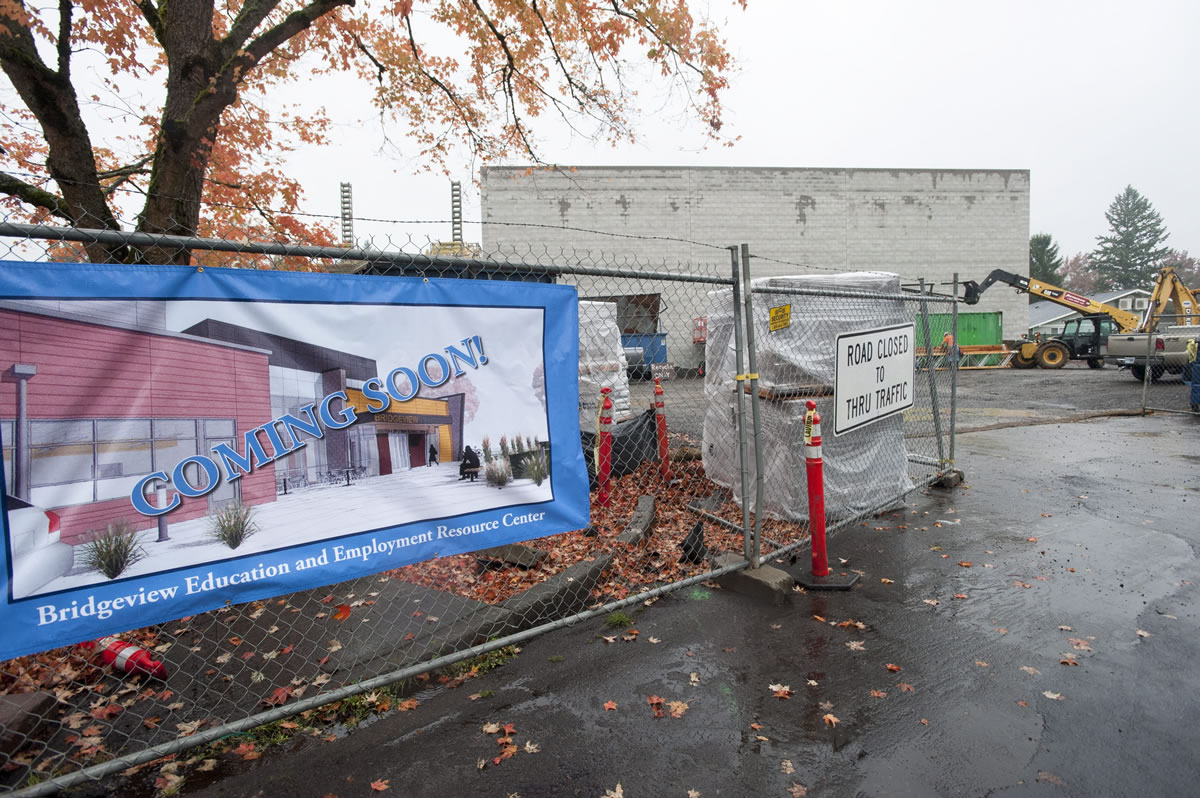Lately, local conversations around poverty have centered on short-term solutions: finding shelter for homeless people, getting them food and securing subsidized housing. The nonprofit Bridgeview, however, is looking at long-term solutions, the kind that break the cycle of poverty and reduce the number of people who need public assistance.
The agency looks to open the Bridgeview Education and Employment Resource Center. The building would house, or at least be a touch point, for agencies such as WorkSource, Clark College and the Clark County Food Bank. The idea is that resources are easier to access and navigate if they’re concentrated in one place. And then, through those supports, people get back on their feet and become more self-reliant.
“The benefits of this building might not be seen for a long time,” said Jan Wichert, Bridgeview’s executive director.
The 8,500-square-foot center is part of the revitalization plan for Skyline Crest, a 20-acre Section 8 housing community in the Vancouver Heights neighborhood. The plan calls for classrooms, offices, a computer lab and teaching kitchen at Bridgeview, which would share a wall with the new Boys & Girls Club that’s being built. A sign on a fence near the construction site says the Bridgeview center is “coming soon.” How soon, though, hinges on the next legislative session and how giving local philanthropists are.




